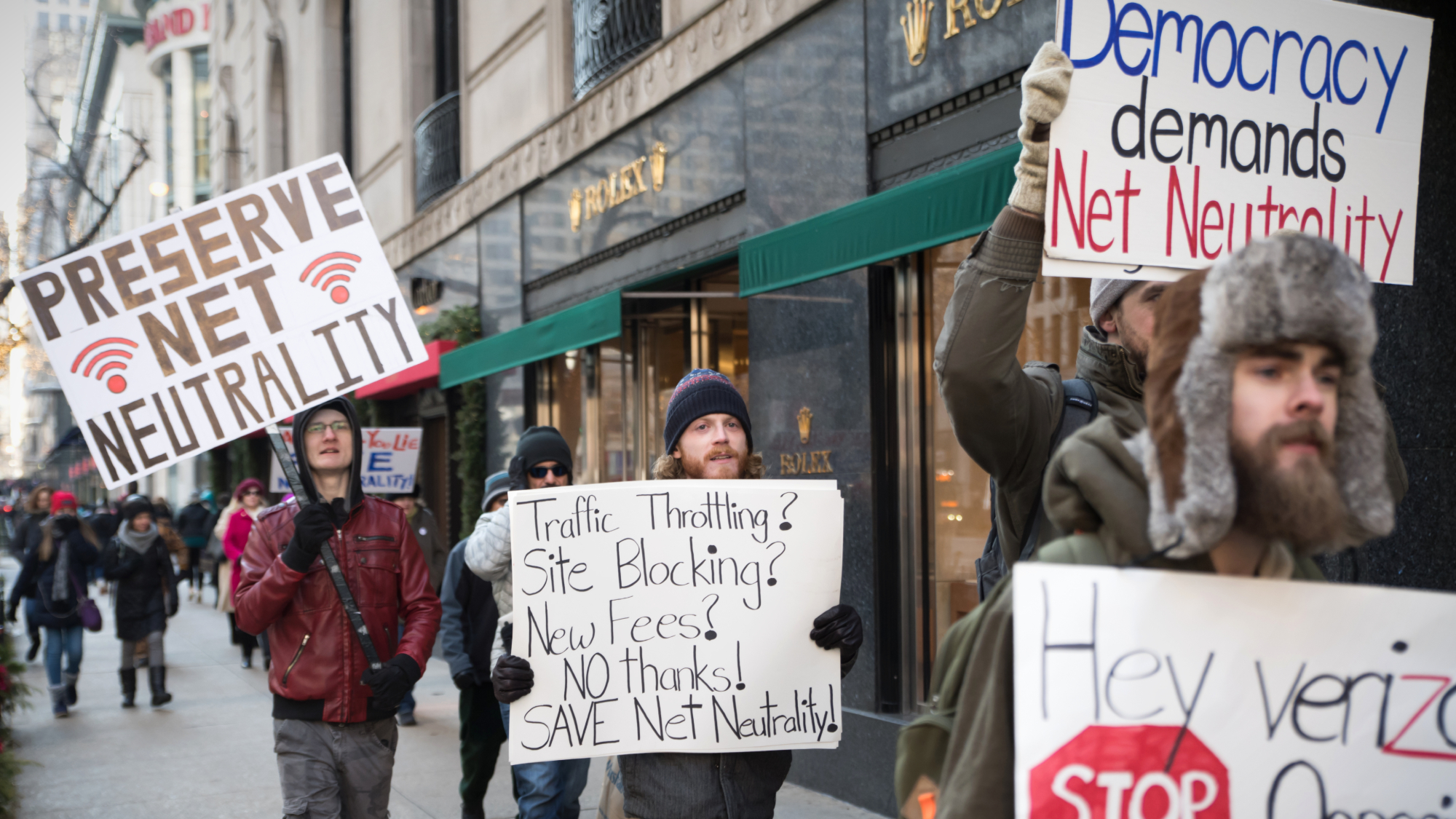Appeals court kills FCC net neutrality rule
A U.S. appeals court blocked Biden's effort to restore net-neutrality rules


A free daily email with the biggest news stories of the day – and the best features from TheWeek.com
You are now subscribed
Your newsletter sign-up was successful
What happened
The U.S. 6th Circuit Court of Appeals dealt a decisive blow to net neutrality Thursday, ruling that the Federal Communications Commission lacked the authority to regulate internet providers like a public utility. The FCC first required broadband providers to treat all legal internet traffic equally — the goal of net neutrality — in the Obama administration.
Donald Trump's Republican-led FCC overturned the rules in 2017, but with President Joe Biden's encouragement, a Democrat-majority FCC voted to reinstate net neutrality last April.
Who said what
The Supreme Court's ruling last June that federal agencies no longer get deference in interpreting regulations "means we can end the FCC's vacillations," Judge Richard Griffin wrote for the three-judge appellate panel. FCC Chair Jessica Rosenworcel said consumers "have told us again and again that they want an internet that is fast, open and fair," and Congress should "heed their call" and "put open internet principles in federal law." FCC Commissioner Brendan Carr, Trump's nominee to lead the agency, said he was "pleased" by the court's invalidation of Biden's "internet power grab," and more deregulation was coming.
The Week
Escape your echo chamber. Get the facts behind the news, plus analysis from multiple perspectives.

Sign up for The Week's Free Newsletters
From our morning news briefing to a weekly Good News Newsletter, get the best of The Week delivered directly to your inbox.
From our morning news briefing to a weekly Good News Newsletter, get the best of The Week delivered directly to your inbox.
What next?
Open-internet advocates could "seek review by the Supreme Court," Reuters said. But that's probably a dead end, former FCC official Marc Martin told The Washington Post. Attention-grabbing "future bad acts" by internet providers could "maybe bring a different Congress to act and give the FCC authority. Short of that, I think it's over."
A free daily email with the biggest news stories of the day – and the best features from TheWeek.com
Peter has worked as a news and culture writer and editor at The Week since the site's launch in 2008. He covers politics, world affairs, religion and cultural currents. His journalism career began as a copy editor at a financial newswire and has included editorial positions at The New York Times Magazine, Facts on File, and Oregon State University.
